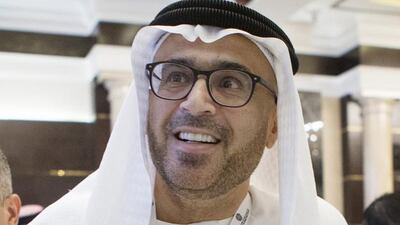It almost goes without saying that the world wide web left its mark on the 20th century. It is difficult to find a historical invention as important as the internet. This does not require much effort to prove: the internet has taken over our lives and has had sweeping effects, both positive and negative, on the economy, politics, security, education and culture. It has also played a significant role in reformulating several concepts and roles that had been fixed for decades, whether for individuals, communities or institutions.
In 1996, there were approximately 40 million users worldwide, while in 2013 there were more than 2.5 billion users. Surveys by the United Nations indicate that this number increased to 3.2 billion by the end of 2015 and it is expected to reach 3.5 billion by the end of 2016 – approximately 47 per cent of the world’s population.
From my perspective, the most important impact of the internet is that it allows the average person, anywhere in the world, access to limitless knowledge, ideas and information with ease and speed. Moreover, the internet enables interactive engagement, instead of acting merely as a recipient as was the case in the past. The abundant flow of information has not only enriched lives but also increased the average person’s impact on political, economic and social life.
Moreover, the internet has facilitated ways to obtain information, to influence and mobilise people over an idea or a goal, and to impact the local and global surroundings – previously, traditional institutions such as political parties, organisations and parliaments had played this role. In this sense, the internet has made the individual an integral and inseparable part of what I call the “proactive public” in my book From Tribe to Facebook: The Transformational Role of Social Networks. One of the most important features of the internet is that we get equal opportunities in the virtual world. The term “internet democracy” also applies to how information is managed and delivered.
Perhaps the internet’s greatest impact has been the break from conventional patterns of political work. Currently, the popular base contributes to laying the foundations for political action by participating in it and affecting its course. This is evident in the role the internet plays in the political field through social media networks such as Facebook, Twitter and WhatsApp.
Not only has the internet changed conventional notions of politics, but it has also transformed those relevant to business, economics and the military. This becomes clearer when looking at the internet’s important role in the fields of commerce and marketing. On the security level, the internet plays a role in the emergence of threats such as “cyberwars”. Cyberwars are no less dangerous than direct military confrontation. In fact, they may be more effective than conventional warfare considering their strong ability to damage or even destroy the opponent.
The internet has also changed the concept, content and criteria of power. The American computer scientist, Jaron Lanier, expressed this best in his 2014 book, Who Owns the Future?: “Whoever has the most powerful computer will be the most powerful person, whether they planned it or not.”
Like many other inventions, the internet is a loyal servant to the user who can steer it in any direction, employing it for the good or bad. It is truly a double-edged sword, maybe even sharper than anything that has preceded it – especially with its ability to transcend time and space boundaries to achieve goals where other tools have failed.
In addition, the internet is unique not only in that it is capable of attracting and captivating millions of users, but also because it provides a framework on which to build relationships and interactions. Hence, the way the internet is employed and the goals for using it are in fact a process linked with the cultural and political criteria of the users themselves, not the internet.
Despite the fact that the internet has an enormous influence, it is, at the end of the day, a neutral channel that can be influential only by the user content injected into it. Governments must set stronger regulation and legislative frameworks to address cybercrimes, terrorist recruitment, unscrupulous use of social networks, and rumour dissemination. This would allow users to benefit from the vast information revolution, while avoiding the threats it poses to the security and stability of societies, especially in Arab countries that are being targeted by extremist groups who use the internet to further their agendas.
Despite several studies conducted on the internet’s impact in Arab countries on political, economic, security, and other levels, I believe that more in-depth studies are always needed in this area since the technological revolution never ceases to advance and be renewed. Furthermore recent years have revealed that the internet has become an arena in which to pass and implement projects of chaos, division and religious and racial conflict in the Arab region.
Dr Jamal Sanad Al Suwaidi is the director general of the Emirates Centre for Strategic Studies and Research

